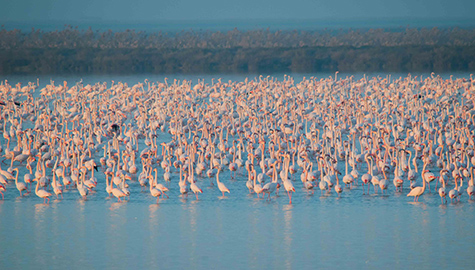Scientists from the UCA participate in a study that warns of the risk of collapse of Doñana without more active local management 17 February 2017
The researcher of the Biology Department of the UCA Edward Peter Morris is one of the authors of this research work published in the journal Frontiers in Ecology and the Environment
Climate change is increasing the risk of collapse of the world’s most iconic wetlands. However, this trend can be corrected by better local management of such wetlands. This is the main conclusion reached by a group of multidisciplinary researchers belonging to the CSIC (Higher Council for Scientific Research) and several Spanish and Dutch universities, including the University of Cadiz, following the completion of a study that has been recently published on the prestigious journal “Frontiers in Ecology and the Environment”.
This work brings to light the fact that, to protect internationally important wetlands such as Doñana against climate change, it is necessary to reduce threats such as fertilizer and sewage inputs or the intensive exploitation of groundwater and surface waters.
The Doñana National Park is one of the few wetlands in the world on UNESCO’s World Heritage List and “local problems such as deterioration of water quality due to excessive nutrient inputs or intensive exploitation of aquifers can exacerbate the effects of extreme weather events such as droughts and heat waves, reducing the ability of aquatic ecosystems to withstand the impacts of climate change”, warns this international group of scientists.
Bibliographical references: Green, A.J., Alcorlo, P., Peeters, E.T.H.M., Morris, E.P., Espinar, J.L., Bravo, M.A., Bustamante, J., Díaz-Delgado, R., Koelmans, A.A., Mateo, R., Mooij, W.M., Rodríguez-Rodríguez, M., van Nes, E.H., Scheffer, M. (2017) “Creating a safe operating space for wetlands in a changing climate”. Frontiers in Ecology and the Environment.
https://esajournals.onlinelibrary.wiley.com/hub/journal/10.1002/(ISSN)1540-9309/


